The perfect hotel doesn’t exist—at least not in a universal sense.
What feels like luxury to one traveler might feel stuffy to another, and what’s charmingly boutique to some might feel inconveniently small to others.
The truth is, the perfect hotel is entirely personal, shaped by your unique travel preferences, priorities, and personality.
Your accommodation sets the tone for your entire trip, so aligning it with your travel style isn’t just about comfort—it’s about creating the right foundation for the experience you’re seeking.
Here’s how to find that sweet spot where your travel personality meets the perfect property.
The Efficient Business Traveler
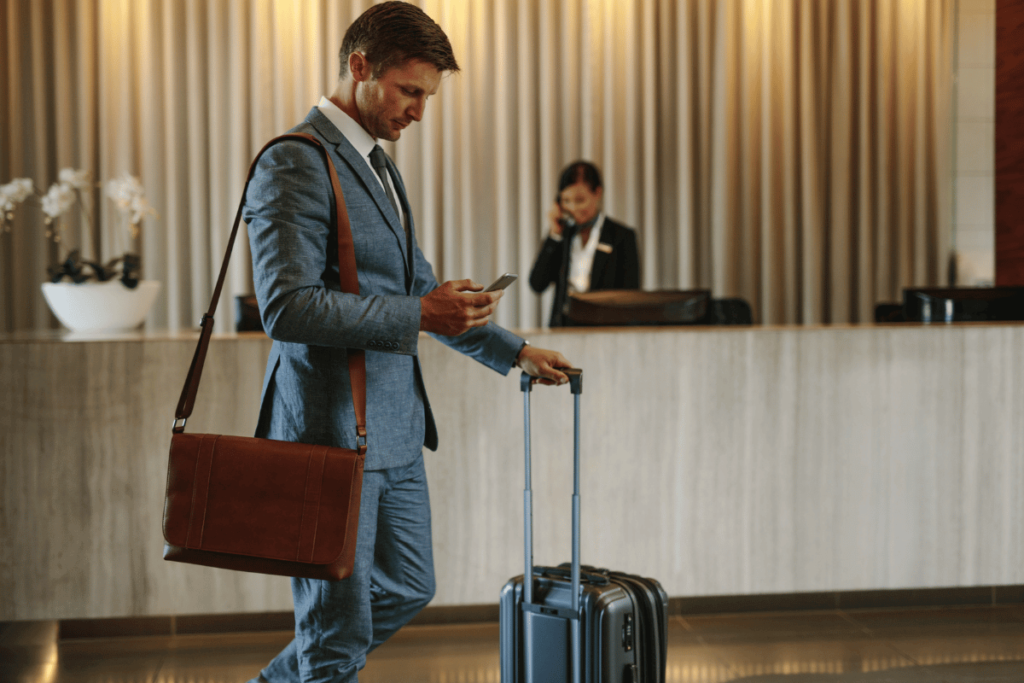
- You prioritize: Productivity, convenience, reliable services
- Your hotel personality: Streamlined, functional, consistent
When your trip revolves around meetings and work obligations, your hotel needs to be an extension of your office—but with better room service.
Look for:
- Location near your meeting venues or with good transport links
- Reliable, high-speed WiFi (ideally complimentary)
- Ample workspace in rooms with ergonomic chairs
- 24-hour business centers for unexpected printing needs
- Express check-in/check-out options
- Blackout curtains and soundproofing for quality sleep
- On-site dining for those late work nights
- Fitness facilities for maintaining your routine
Avoid:
- Properties with complicated layouts or spread-out facilities
- Hotels known for attracting large tour groups or families
- Historic properties with charm but potential tech limitations
Hotel types that often work: Established business chains like Marriott, Hilton, or Hyatt; Japanese business hotels; select airport hotels with executive floors
Pro tip: Loyalty programs become particularly valuable for business travelers. The elite status perks—priority check-in, late checkout, room upgrades—can significantly improve your work trip experience.
The Luxury Seeker
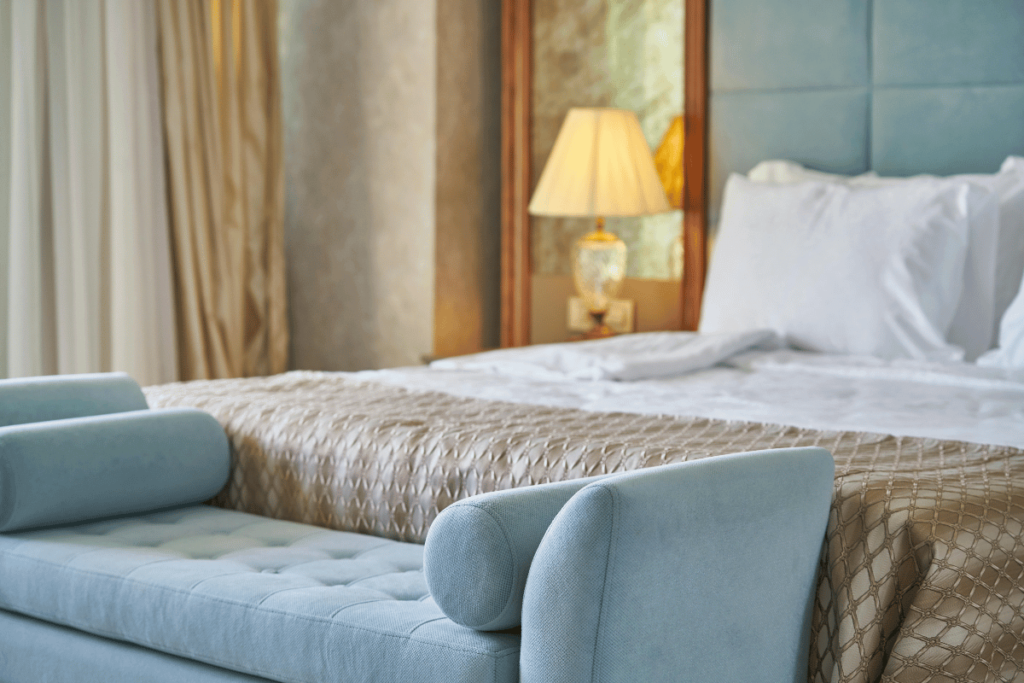
- You prioritize: Exceptional service, refined aesthetics, memorable experiences
- Your hotel personality: Discerning, detail-oriented, quality-focused
For you, accommodation isn’t just a place to sleep—it’s a destination in itself, an integral part of your travel experience that should delight all your senses.
Look for:
- High staff-to-guest ratios for personalized attention
- Thoughtful details like turndown service and premium toiletries
- Concierge services with genuine local connections
- Exceptional on-site dining (bonus for Michelin stars)
- Sophisticated wellness facilities beyond basic gyms
- Quality bedding (hotels that mention specific brands)
- Curated art collections or design elements
- Quiet, spacious rooms with considered layouts
Avoid:
- Hotels that host frequent large events or conferences
- Properties that have recently changed management
- Newly opened luxury hotels still working out service kinks
Hotel types that often work: Established luxury brands (Four Seasons, Mandarin Oriental), boutique luxury collections (Relais & Châteaux), and historic grand dames with modern renovations
Pro tip: Even luxury seekers should research beyond star ratings. A well-run boutique four-star can often provide more personalized luxury than a corporate five-star. Look for properties with membership in luxury collections like Leading Hotels of the World or Small Luxury Hotels.
The Budget-Conscious Explorer
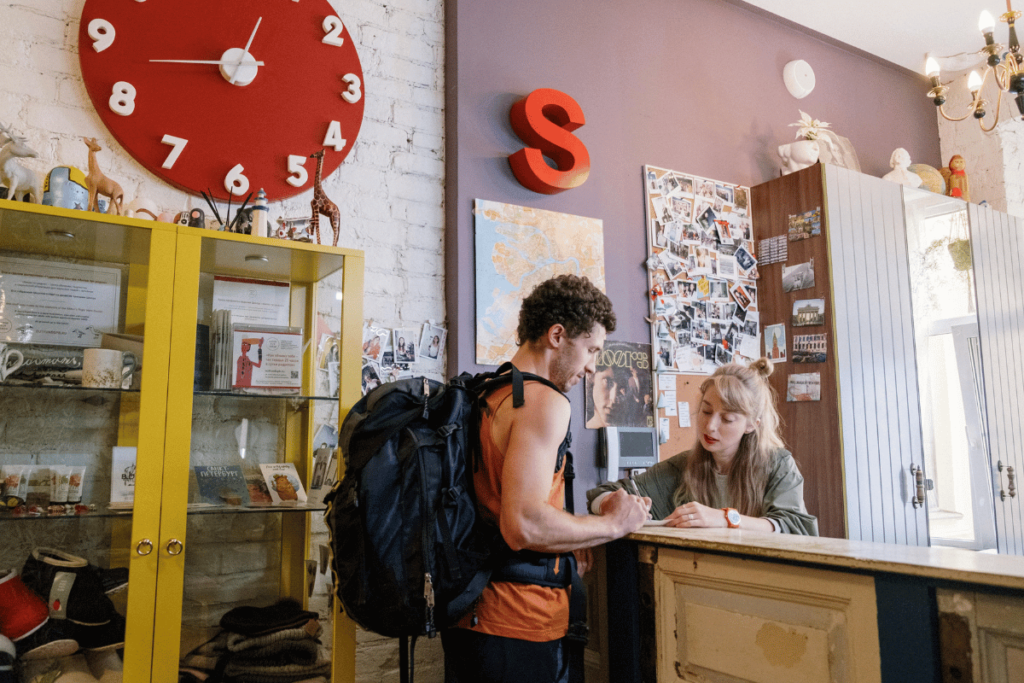
- You prioritize: Value, functionality, location
- Your hotel personality: Practical, resourceful, prioritization-focused
Your accommodation is primarily a comfortable base for exploration—you’d rather spend your budget on experiences than excessive hotel amenities you won’t use.
Look for:
- Clean, well-maintained properties with positive reviews
- Convenient locations that minimize transport costs
- Included breakfast to start your day economically
- Kitchenettes or communal kitchens for meal prep options
- Free WiFi without speed restrictions
- Properties offering longer-stay discounts
- Honest photography in marketing materials
- Locally owned options often provide better value
Avoid:
- Rock-bottom prices in prime areas (often hiding issues)
- Properties with significant hidden fees (resort fees, parking)
- Hotels with captive-audience pricing (expensive water, WiFi)
- Recently renovated budget chains (rates often inflate post-renovation)
Hotel types that often work: Well-reviewed guesthouses, modern hostels with private rooms, apartment hotels, international budget chains in business districts (weekend deals)
Pro tip: Consider “budget luxury” strategies like booking luxury hotels in business districts on weekends, or scheduling your trip during shoulder season when higher-end hotels offer lower rates to maintain occupancy.
The Digital Nomad

- You prioritize: Connectivity, comfortable workspaces, community, long-stay amenities
- Your hotel personality: Adaptable, community-oriented, routine-building
Your accommodation needs to function as both a productive workspace and a comfortable home while providing opportunities to connect with like-minded travelers.
Look for:
- Proven reliable WiFi (check recent reviews specifically for this)
- Multiple workspace options (in-room, lobby, co-working spaces)
- Accommodations with kitchenettes or full kitchens
- Weekly and monthly rate discounts
- On-site laundry facilities or services
- Properties with natural community spaces
- Neighborhoods with cafés and alternate workspaces nearby
- Good natural light in rooms and common areas
Avoid:
- Resorts focused primarily on relaxation/disconnection
- Properties with primarily holiday or business travelers
- Hotels with poor reviews about WiFi stability
- Areas with significant noise during working hours
Hotel types that often work: Co-living spaces, boutique hostels with private rooms, extended-stay apartment hotels, and boutique hotels with coworking partnerships
Pro tip: Email properties directly about your specific needs before booking. Many hotels are actively courting digital nomads and may offer unadvertised perks like access to premium workspaces, discounted long-stay rates, or community events.
The Family Vacationer
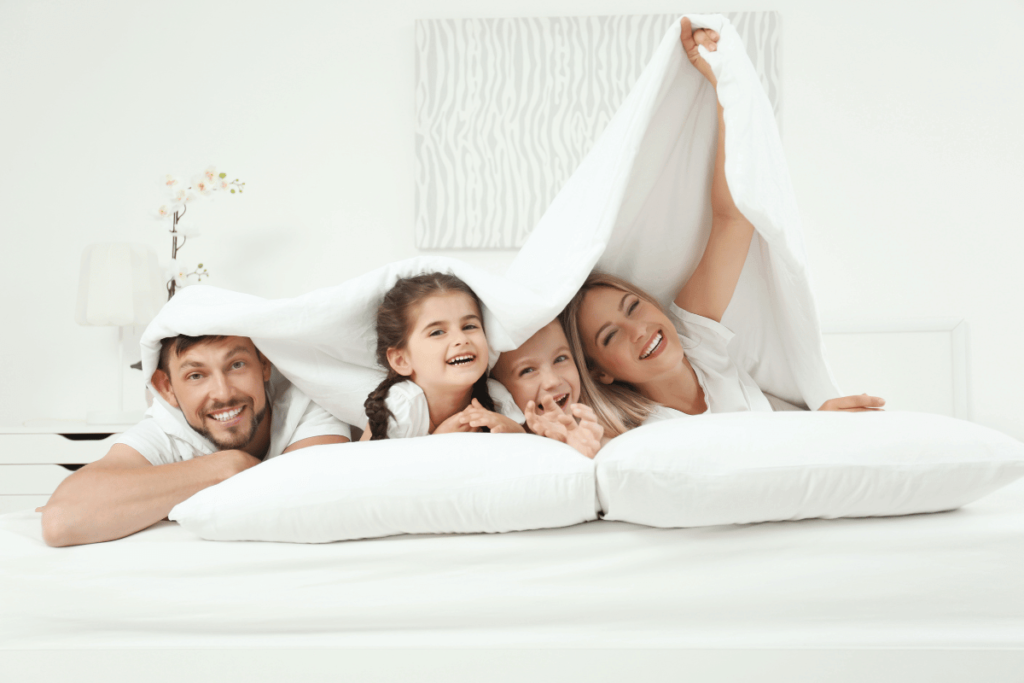
- You prioritize: Space, safety, convenience, child-friendly amenities
- Your hotel personality: Practical, preparation-focused, flexibility-valuing
Your ideal accommodation adapts to family needs while providing an environment where both adults and children can enjoy themselves.
Look for:
- Genuinely family-friendly attitudes (not just marketing)
- Flexible room configurations or connecting rooms
- Refrigerators for storing snacks and milk
- Swimming pools with shallow areas or children’s pools
- Early dining options or room service for hungry kids
- Soundproofed rooms (for both your sanity and other guests)
- Safe outdoor spaces for children to burn energy
- Washing machines for inevitable spills and accidents
Avoid:
- Properties primarily catering to honeymooners or couples
- Hotels with formal, quiet atmospheres where children feel unwelcome
- Accommodations with dangerous features (unprotected balconies, etc.)
- Properties with poor safety records or locations
Hotel types that often work: Apartment hotels, family-focused resorts, vacation rentals, select mid-range chains with family programs
Pro tip: Look beyond the “kids club” marketing. The best family accommodations help parents and children enjoy both separate and together time, not just provide babysitting services. Also, always check the fine print regarding children’s ages for any free or discounted stays.
The Authentic Experience Seeker
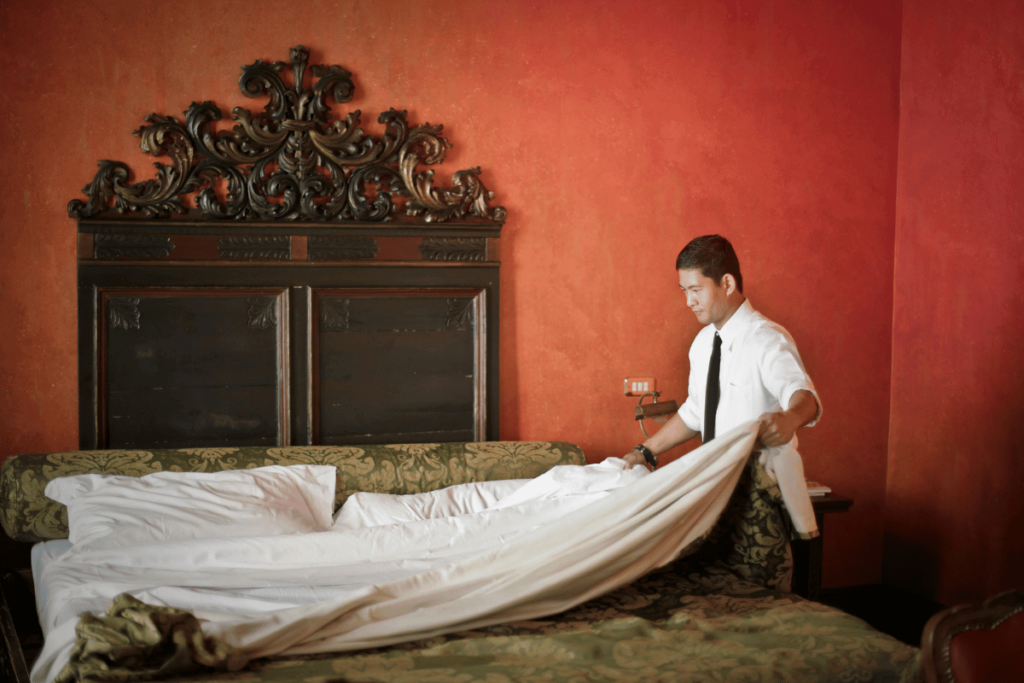
- You prioritize: Cultural immersion, local connections, unique experiences
- Your hotel personality: Curious, adaptable, experience-focused
Your accommodation should reflect and connect you with the destination’s culture, becoming part of your travel story rather than just a place to store your luggage.
Look for:
- Locally owned and operated properties
- Buildings with historical significance or architectural interest
- Hotels employing local staff with cultural knowledge
- Properties incorporating local design, art, and materials
- Accommodations offering genuine cultural activities
- Locations in authentic neighborhoods, not just tourist zones
- Properties with on-site restaurants serving local cuisine
- Hotels with connections to local artisans or experiences
Avoid:
- International chains with standardized global experiences
- Culturally disconnected luxury resorts
- Properties marketed primarily to your own nationality
- Hotels that serve primarily foreign food
Hotel types that often work: Heritage hotels in historic buildings, family-run guesthouses, boutique hotels with local ownership, carefully selected homestays
Pro tip: Research the ownership and development history of “authentic” properties. True heritage hotels and locally beneficial tourism stand apart from artificial “local color” created purely for tourists.
The Social Butterfly
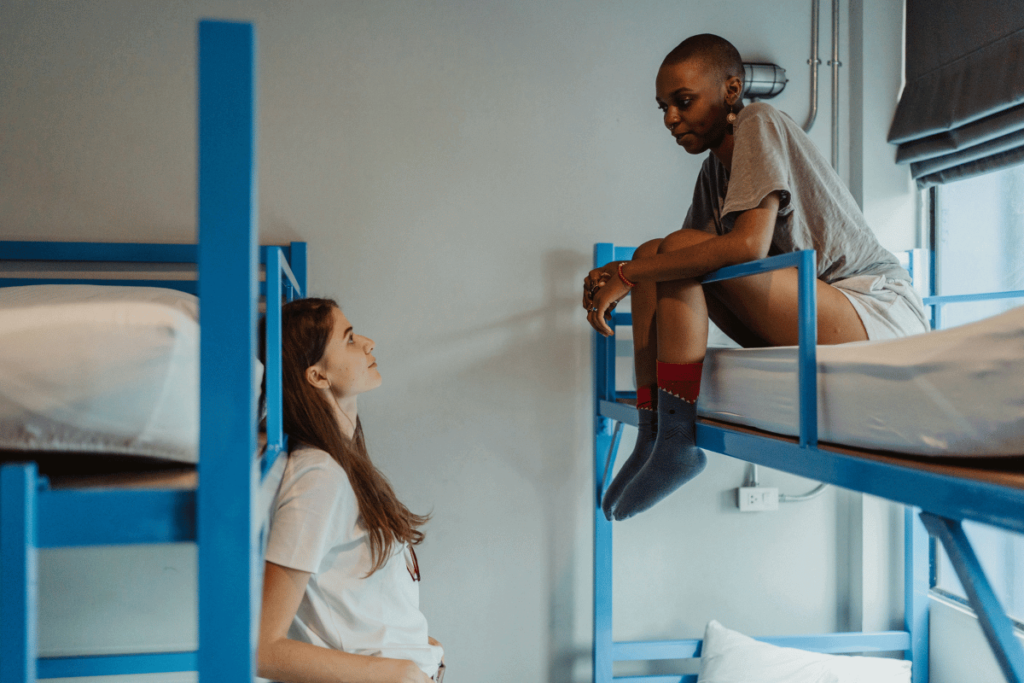
- You prioritize: Meeting people, shared experiences, vibrant environments
- Your hotel personality: Outgoing, flexible, energy-seeking
Your ideal accommodation facilitates connections and provides environments where spontaneous conversations and new friendships naturally develop.
Look for:
- Thoughtfully designed common areas that encourage interaction
- Regular social events or communal activities
- Bar or restaurant spaces popular with both guests and locals
- Properties with co-working or multi-purpose social spaces
- Hotels hosting skill-shares, classes, or group activities
- Accommodations with walking tours or group excursions
- Properties attracting a diverse, international crowd
- Hostels or hotels with private rooms AND social spaces
Avoid:
- Accommodations where guests are primarily isolated (e.g., private villa resorts)
- Business hotels during the week (empty during day, early nights)
- Properties with minimal common areas
- Hotels catering exclusively to couples seeking privacy
Hotel types that often work: Upscale hostels with private room options, social hotels (like Selina or Generator), boutique properties with vibrant common areas, and certain co-living spaces open to short stays
Pro tip: Check a property’s social media presence—it often reveals the true social atmosphere better than official marketing materials. Active Instagram location tags with guests connecting or community events hint at genuine social opportunities.
The Wellness Enthusiast

- You prioritize: Self-care, health facilities, calm environments, nourishment
- Your hotel personality: Mindful, routine-maintaining, health-conscious
Your accommodation should support and enhance your wellbeing practices while providing nourishing food options and spaces conducive to mental clarity.
Look for:
- Truly exceptional fitness facilities (beyond token gyms)
- Healthy, whole-food dining options (ideally sourced locally)
- Quality spa services with trained therapists
- Rooms with sufficient space for in-room practice
- Natural materials and excellent air quality
- Properties with outdoor spaces for movement or meditation
- Good soundproofing for restful sleep
- Hotels with specialized wellness programs or retreats
Avoid:
- Properties with wellness as a mere marketing afterthought
- Hotels with unhealthy food as the only dining option
- Accommodations in areas with significant pollution or noise
- Properties using chemical-heavy cleaning products
Hotel types that often work: Dedicated wellness resorts, spa hotels with comprehensive programs, yoga-focused properties, and nature-integrated accommodations with wellness elements
Pro tip: Call to ask specific questions about your wellness priorities. Generic “spa hotel” classifications vary dramatically—some offer transformative wellness programs while others have just basic massage treatments. The way staff respond to specific wellness questions reveals the property’s true focus.
Making Your Final Decision
When you’ve narrowed down options that match your travel personality, consider these final factors:
- Read targeted reviews: Filter for travelers similar to you. A business traveler’s nightmare might be a family’s dream.
- Analyze the photos carefully: Marketing photos are designed to create emotional appeal. Look for practical details like room layout, storage space, and work areas.
- Check the location microclimate: A hotel might be in the right neighborhood but on a particularly noisy street or far from public transport.
- Consider your trip rhythm: A stunning resort an hour from town might be perfect for a pure relaxation trip but frustrating if you plan daily excursions.
- Trust your communication experience: How a hotel responds to your pre-booking questions often reflects their overall service philosophy.
Knowing how to choose the right hotel is all about what would support your specific travel aims for this particular trip.
That charming boutique hotel might be perfect for your romantic getaway but all wrong for your conference stay—and that’s exactly as it should be. Travel is personal, and your accommodation choices should be too.


